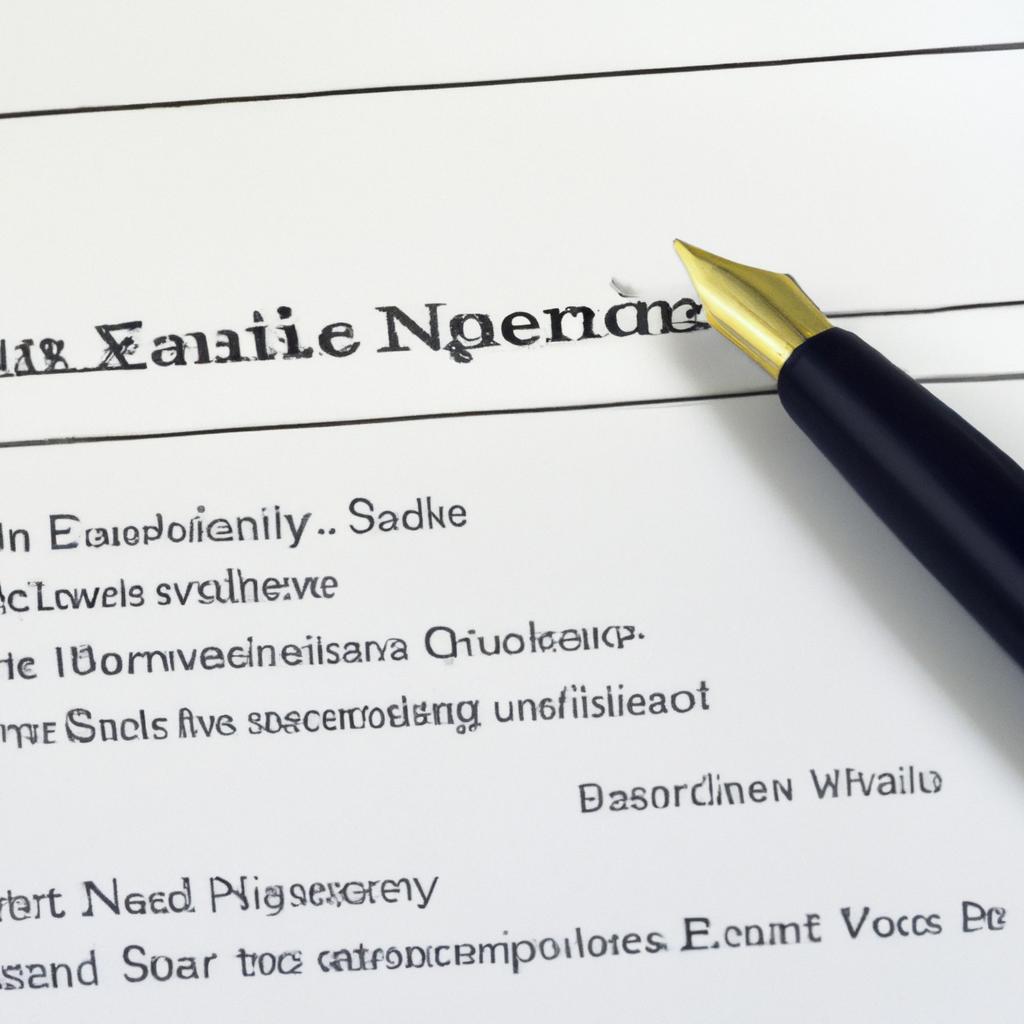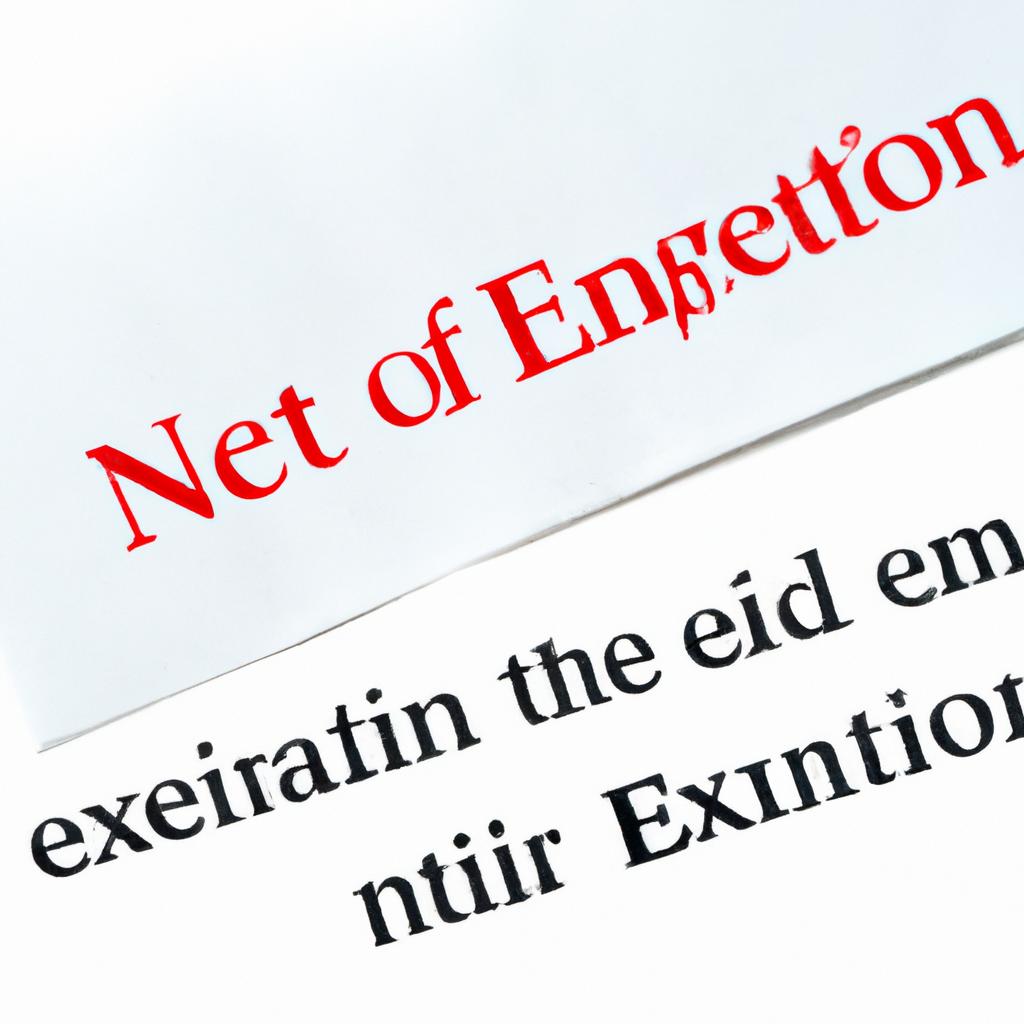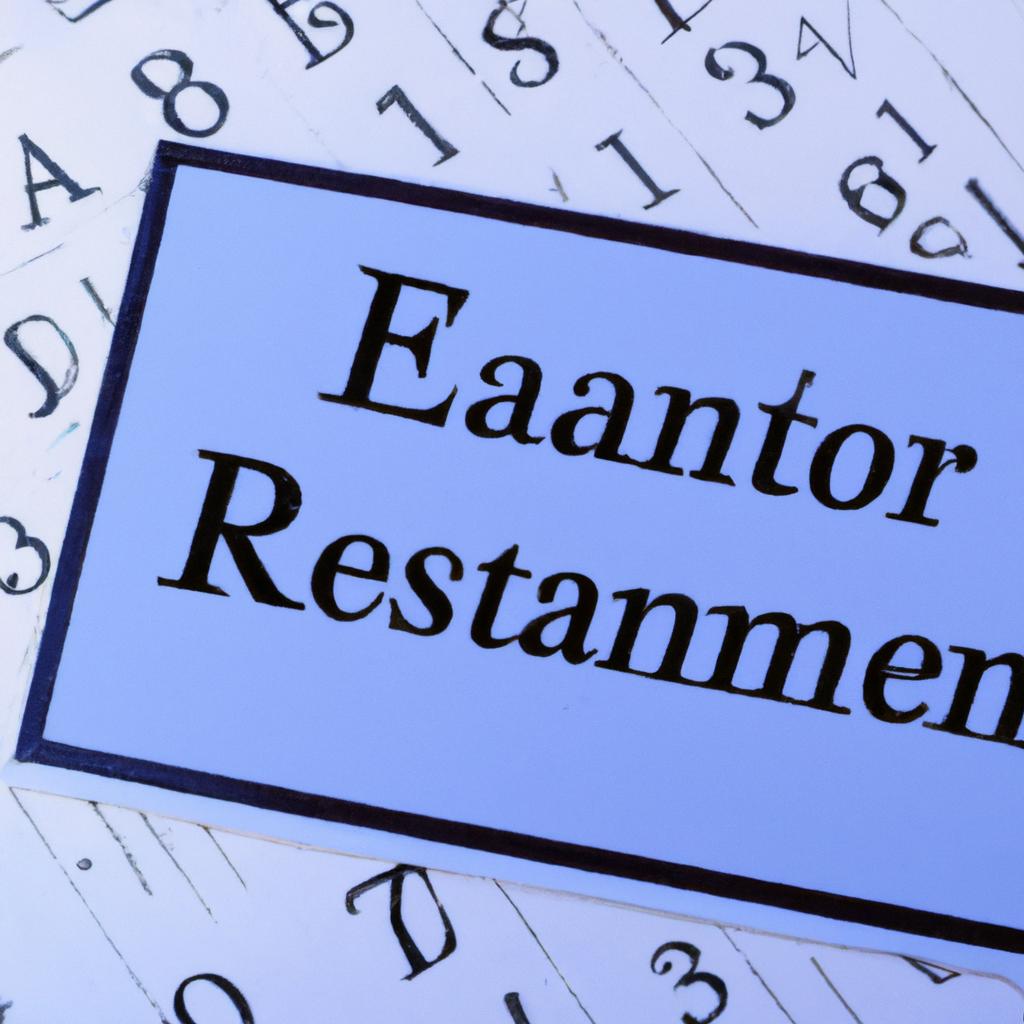In the intricate tapestry of estate administration, navigating the complexities of a deceased individual’s affairs requires meticulous attention to detail and expert guidance. At Morgan Legal Group in New York City, we specialize in providing comprehensive legal counsel in matters of estate planning, probate, elder law, Wills, and trusts. One essential aspect of estate settlement is obtaining an Employer Identification Number (EIN) for a deceased estate, a crucial step in ensuring the smooth transfer of assets and property. Join us as we delve into the nuances of EIN numbers for deceased estates and uncover the vital role they play in the seamless distribution of wealth and assets.
Understanding the importance of obtaining an EIN number for a deceased estate
When dealing with a deceased estate, it is crucial to understand the importance of obtaining an Employer Identification Number (EIN) number. An EIN number is necessary to identify the estate as a separate legal entity for tax purposes. Without an EIN number, the estate cannot open a bank account, file tax returns, or distribute assets to beneficiaries. It is a crucial step in ensuring that the estate is properly managed and compliant with tax regulations.
Obtaining an EIN number for a deceased estate can streamline the probate process and make it easier to manage the estate’s affairs. With an EIN number, the estate can easily report income and expenses, file estate tax returns, and distribute assets in accordance with the deceased’s wishes. By taking the time to obtain an EIN number, you can ensure that the estate administration process runs smoothly and efficiently, minimizing the risk of disputes and legal issues down the road.

Navigating the process of applying for an EIN number for a deceased estate
can be a complex and time-consuming task. There are several steps that need to be followed in order to ensure that the application is completed correctly and efficiently. One of the first things that needs to be done is to gather all the necessary documentation required for the application. This can include the deceased individual’s Social Security number, death certificate, and any other relevant information.
Once all the necessary documentation has been gathered, the next step is to fill out the application for an EIN number. This application can be completed online through the IRS website, or it can be done by mail or fax. It is important to ensure that all the information provided on the application is accurate and up to date. After the application has been submitted, it can take a few weeks for the EIN number to be issued. Once the number has been received, it can be used to file taxes on behalf of the deceased estate and to open bank accounts in the estate’s name.
Legal implications of failing to secure an EIN number for a deceased estate
Failing to secure an Employer Identification Number (EIN) for a deceased estate can have significant legal implications. Without an EIN, the estate may face the following consequences:
- Difficulty in opening an estate bank account
- Problems with filing estate taxes
- Lack of ability to distribute assets to beneficiaries
- Potential fines and penalties from the IRS
It is crucial to obtain an EIN for a deceased estate to ensure that the estate administration process runs smoothly and avoids any legal complications. Consult with an experienced estate planning attorney to learn more about the importance of securing an EIN for a deceased estate.

Recommendations for effectively managing an EIN number for a deceased estate
When managing an EIN number for a deceased estate, it is crucial to follow a few key recommendations to ensure a smooth and efficient process. First and foremost, it is essential to promptly notify the IRS of the individual’s passing to prevent any potential issues with the EIN number. This can typically be done by filing Form 56, Notice Concerning Fiduciary Relationship, with the IRS.
Additionally, it is important to update all relevant documents and accounts with the EIN number to reflect the change in ownership or management. This includes notifying banks, financial institutions, and any other entities that may have the EIN number on file. By diligently updating this information, you can avoid any potential confusion or complications down the line. Furthermore, it is advisable to consult with an experienced attorney specializing in estate planning to ensure that all legal requirements are met and that the process is handled correctly.
| Key Recommendations | ||
|---|---|---|
| Notify the IRS promptly | ||
| Update all relevant documents and accounts | ||
| Consult with an experienced estate planning attorney |
Q&A
Q: What is an EIN number and why is it important for a deceased estate?
A: An EIN number, also known as an Employer Identification Number, is a unique nine-digit number assigned by the IRS to identify a business entity. It is important for a deceased estate because it helps to separate the estate’s tax obligations from those of the deceased individual.
Q: How can I obtain an EIN number for a deceased estate?
A: You can apply for an EIN number for a deceased estate by filling out Form SS-4 and submitting it to the IRS. You can do this online, by mail, or by fax.
Q: What are the benefits of having an EIN number for a deceased estate?
A: Having an EIN number for a deceased estate can help streamline the process of handling the estate’s financial affairs, such as filing taxes, opening a bank account, and distributing assets to beneficiaries.
Q: Is there a deadline for obtaining an EIN number for a deceased estate?
A: While there is no specific deadline for obtaining an EIN number for a deceased estate, it is recommended to do so as soon as possible to avoid any delays or complications in managing the estate’s affairs.
Q: Can an EIN number be transferred to a new executor or administrator of the deceased estate?
A: No, an EIN number is specific to the deceased estate and cannot be transferred to a new executor or administrator. The new executor or administrator will need to apply for a new EIN number for the estate.
The Way Forward
In conclusion, obtaining an EIN number for a deceased estate is a necessary step in the administration process to ensure all financial and tax matters are properly addressed. By following the guidelines outlined in this article, you can navigate this process with ease and ensure that the estate is handled in a timely and efficient manner. Remember, seeking professional advice and assistance when needed can help alleviate any confusion or complications that may arise. Thank you for reading and we wish you success in handling the estate of your loved one.

